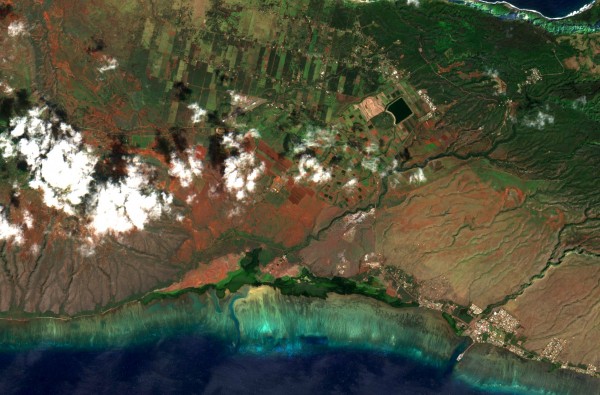GEOG researchers Julie Silva, Sergii Skakun, Hannah Kerner, Catherine Nakalembe, Inbal Becker-Reshef and Ritvik Sahajpal, along with former PhD graduate and Research Associate Professor at Tulane University, Nathan Morrow, have been named recipients of NASA’s Equity and Environmental Justice awards. The program, in its first year, is funding 39 research projects that apply Earth science, geospatial, and socioeconomic information to equity and environmental justice (EEJ) issues.
Read below for a summary of the selected projects from the department. View the NASA announcement and full project descriptions here.
EO-Enabled Food Security Dashboard to Close Critical Data Gaps in Highly Food Insecure Maui County
Hannah Kerner (PI), Catherine Nakalembe, Inbal Becker-Reshef, Ritvik Sahajpal
Food insecurity in Maui County is a key equity and environmental justice (EEJ) issue as small-scale, indigenous farmers that produce food for local consumption have been historically marginalized in state and national policies and investments, stifling their production of native crops and consequently their livelihoods. The goal of this project is to integrate datasets derived from Earth observations (EO) into a Food Security Dashboard that will focus on supporting small-scale, independent, and indigenous farmers in Maui County to support the county’s and state’s economic diversification and sustainability goals.
Environmental Injustice and Deaths of Despair: Lessons from Montana’s Tribal Lands
Julie Silva (PI), Sergii Skakun
In the United States, ‘Deaths of Despair’–premature mortality caused by suicide, alchohol, and drug use–are highest amongst Native Americans, who remain excluded from most studies of declining life expectancy. To date, limited attention has been paid to the role of environmental injustice and how it may exacerbate or add to the existing socio-economic challenges contributing to deaths of despair. The proposed project uses the case of Native American Lands in Montana to investigate the dynamic interactions between environmental change and socio-economic conditions, in order to identify potential pathways whereby environmental hardship may contribute to (and result from) forms of socio-economic distress linked to deaths of despair.
Image of agricultural fields in Molokai courtesy of Hannah Kerner.
Published on Thu, 08/11/2022 - 10:37


